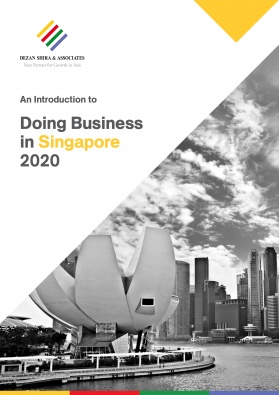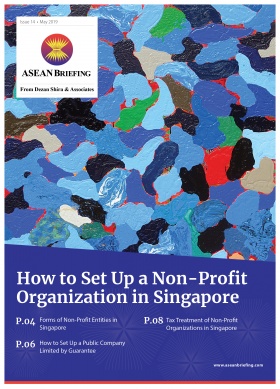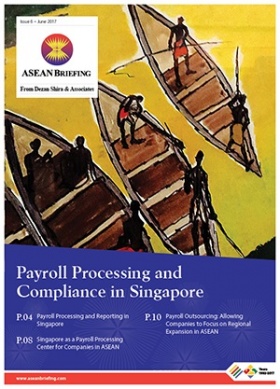Singapore’s COVID-19 Temporary Measures Act Provides Legal Basis for Force Majeure
- The COVID-19 Temporary Measures Act (COVID-19 Act) provides relief for businesses unable to fulfil their contractual obligations established on or after February 1, 2020, and before March 25, 2020.
- The Act allows for the suspension of contractual obligations for only six months – starting April 20, 2020, and covers contracts for leases for non-residential properties, tourism-related contracts, and hire-purchase agreements, among others.
- The Act also temporarily changes bankruptcy and insolvency laws by increasing the debt thresholds.
On April 7, 2020, the Singaporean government issued the COVID-19 Temporary Measures Act (COVID-19 Act) to provide legal reprieve for businesses that are unable to fulfil their contractual obligations during the pandemic. The Act was commenced on April 20, 2020.
Some respite for businesses unable to meet contractual obligations
The Act allows for the suspension of contractual obligations for only six months (April 20-October 19, 2020) and is designed allow businesses the opportunity to negotiate with the other party and reach aa compromise without the threat of litigation. Further, it will provide businesses with relief from immediate cash-flow problems who are at risk of having to pay damages or having their assets seized.
The contracts covered in the Act are for leases for commercial and industrial properties, contracts for construction contractors and suppliers, tourism-related contracts, as well as certain secured loan facilities granted by banks or financial institutions to small and medium-sized enterprises (SMEs), among others.
In addition, the Act temporarily changes the bankruptcy and insolvency laws by increasing the debt thresholds for bankruptcy and gives a safety net for businesses to continue trading while technically insolvent.Investors should be reminded that these measures are temporary, and the freezing of contractual obligations only applies while the Act is in force.
What are the types of contracts covered by the Act?
The Act applies to contractual obligations performed on or after February 1, 2020, and before March 25, 2020.
Secured loan agreements for SMEs
This applies to loans from banks or financial institutions for SMEs that are secured against commercial or industrial immovable property located in Singapore or fixed assets also located in Singapore, such as machinery.
During the prescribed period, the creditor cannot start or continue insolvency proceedings against the business, and nor can they enforce the aforementioned security.
The government has advised businesses to use this period to discuss payment plans with creditors and to seek the incentives available for SMEs set out in the stimulus packages. Businesses should note that this does not change the term of the loan and any unpaid installments will continue to accrue.
Commercial and industrial property leases
The landlord of commercial and industrial properties cannot evict the tenant on the basis that rent has not been paid from February 1, 2020, or after, due to COVID-19. The landlord also cannot start or continue court proceedings against the tenant.
Tenants must note that the rent is not waived, any waivers will need to be discussed and agreed with the landlord. As such, any rent and applicable late payment fees will continue to accrue.
Construction contractors and suppliers
This relief applies to construction and supply contracts.
If the construction contractors or supplier can prove that their inability to supply goods or materials was due to the pandemic, then this can be a defense for claims of breach of contract or damages.
The other party thus cannot start or proceed with court proceedings during the prescribed period set out in the Act. The government has recommended for both parties to re-negotiate new contract terms and deadlines.Conditional sales agreements or hire purchase agreements
This relief type covers hire purchase agreements or conditional sales agreements for machinery or plants, located in Singapore, used for commercial purposes such as manufacturing. Further, this also covers agreements for commercial vehicles, used as private car hire, or goods vehicles, etc.
The financial institution cannot repossess these assets during the grace period, and they cannot start or proceed with legal actions. Any negotiations that cannot be completed between both parties can be accomplished through the Ministry of Law.
Event or tourism-related contracts
Event or tourism-related contracts also qualify for relief.
Event-related contracts apply to the provision of accommodation, venue, transport, entertainment, catering, or other services for:
- Business meetings, conferences, exhibitions, concerts, sales events, or weddings.
Tourism-related contracts apply to:
- The provision of tourism-related goods and services such as transport, accommodation, tours, catering, dining, for Singaporean or international tourists or;
- The trade and retail of products related to Singapore tourism.
Under the relief period, vendors cannot forfeit a client’s deposit and the client cannot be made to pay cancellation fees (provided the event/tour occurred between February 1 to October 19, 2020).
How do you apply?
To apply, the party seeking relief must serve a Notification of Relief to the creditor, using the online form which can be found here.
What if my creditor does not agree?
If parties to the contract cannot agree if the Act applies to their situation, then the Ministry of Law will appoint independent assessors to settle the dispute. The decision of the assessors will be final and binding and will not be appealable.
Temporary changes to the bankruptcy and insolvency laws
The Act temporarily provides relief for businesses and individuals in financial distress by amending the bankruptcy and insolvency laws.
For businesses, the debt threshold for corporate insolvency has been raised from S$10,000 (US$7,000) to S$100,000 (US$70,000).
For individuals, the debt threshold for personal bankruptcy has been raised from S$15,000 (US$10,600) to S$60,000 (US$42,000). Moreover, the debt threshold for the individual to apply for the debt repayment scheme has been raised from S$100,000 (US$70,000) to S$250,000 (US$176,000).
The period for demands from creditors before the business or individual is presumed insolvent has been extended from 21 days to six months.
About Us
ASEAN Briefing is produced by Dezan Shira & Associates. The firm assists foreign investors throughout Asia and maintains offices throughout ASEAN, including in Singapore, Hanoi, Ho Chi Minh City and Jakarta. Please contact us at asia@dezshira.com or visit our website at www.dezshira.com








